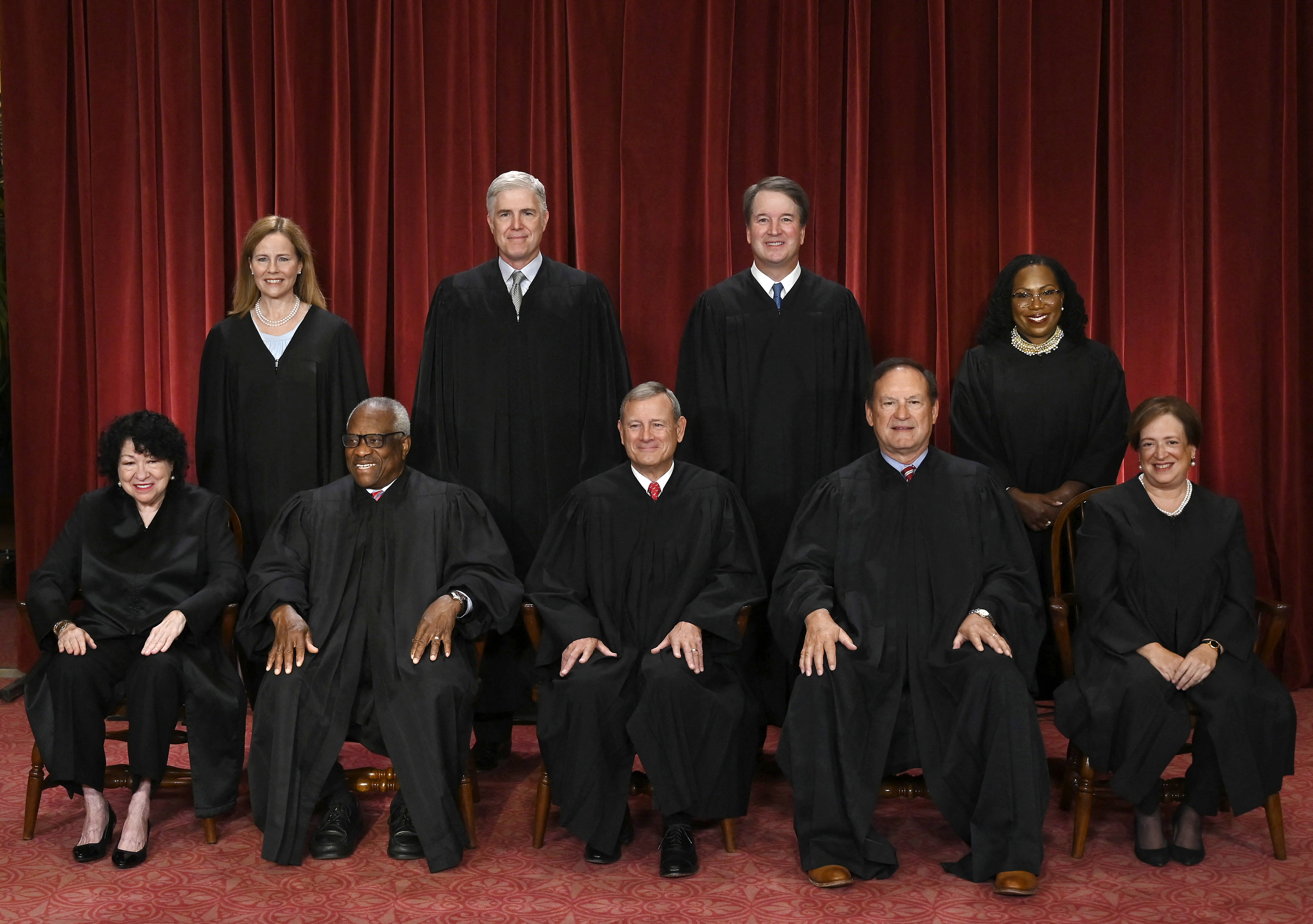President-elect Donald Trump has named Susie Wiles, the defacto manager of his victorious campaign, as his White House chief of staff, making her the first woman to hold the influential role.
Wiles is widely credited within and outside Trump’s inner circle for running what was, by far, his most disciplined and well-executed campaign, and was seen as the leading contender for the position. She largely avoided the spotlight, even refusing to take the mic to speak as Trump celebrated his victory early Wednesday morning. She resisted the formal title of campaign manager, avoiding becoming a target, given Trump’s history of cycling through people in that role.
Wiles’ hire is Trump’s first major decision as president-elect and one that could be a defining test of his incoming administration, as he must quickly build the team that will help run the massive federal government. Wiles doesn’t bring much federal government experience to the role, but has a close relationship with the president-elect.
On the campaign, Wiles was able to do what few others have been able to: help control Trump’s impulses — not by chiding him or lecturing, but by earning his respect and showing him that he was better off when he followed her advice than flouting it.
Get top local stories in Philly delivered to you every morning. >Sign up for NBC Philadelphia's News Headlines newsletter.
Eight years ago, Trump tossed the careful planning of his transition team and instead hired a motley assortment of campaign aides, family members and Republican insiders who spent the better part of his first year in office engaged in infighting that dominated news coverage of the new administration. It was what many experts consider a foundational mistake that hamstrung a president who was new to Washington and government upon his swearing in.
Trump went through four chiefs of staff — including one who served in an acting capacity for a year — during his first administration, part of a record-setting personnel churn. Many top aides were cast out by Trump in his first term, who resented being made to feel managed or condescended to, while others got caught up in ideological spats within the factionalized West Wing.
Trump aides see hope that Wiles’ selection marks a sign that the president-elect is aiming to build a more cohesive team, though one that will almost certainly remain less conventional than his Democratic or Republican predecessors.
Trump, who promised in 2016 to hire “only the best people” has since repeatedly said that he believes the biggest mistake of his first term was hiring the wrong people. He was new to Washington then, he has said, and didn’t know any better. But now, Trump said, he knows the “best people” and those to avoid for roles in his administration.
“Susie is tough, smart, innovative, and is universally admired and respected. Susie will continue to work tirelessly to Make America Great Again,” Trump said in a statement. “It is a well deserved honor to have Susie as the first-ever female Chief of Staff in United States history. I have no doubt that she will make our country proud.”
But who is exactly is Susie Wiles, and what does the Chief of Staff at the White House do? Here's an explainer.
What does the Chief of Staff do?
A chief of staff serves as the president’s confidant, helping to execute an agenda and balancing competing political and policy priorities. They also tend to serve as a gatekeeper, helping determine whom the president spends their time and to whom they speak — an effort under which Trump chafed inside the White House.
In his first administration, Trump went through four chiefs of staff — including one who served in an acting capacity for a year — in a period of record-setting personnel churn.
The chief of staff is “absolutely critical to an effective White House,” said Chris Whipple, whose book “The Gatekeepers” details how the White House chief of staff role shapes and defines a presidency. “At the end of the day the most important thing is telling the president what he doesn’t want to hear.”
“On the plus side, she’s shown that she can manage Trump, that she works with him and can sometimes tell him hard truths, and that’s really important,” said Whipple. “On the minus side, she really has no White House experience and hasn’t really worked in Washington in 40 years. And that’s a real disadvantage.”
Who is Susie Wiles?
The daughter of NFL player and sportscaster Pat Summerall, Wiles worked in the Washington office of New York Rep. Jack Kemp in the 1970s. Following that were stints on Ronald Reagan’s campaign and in his White House as a scheduler.
Wiles then headed to Florida, where she advised two Jacksonville mayors and worked for Rep. Tillie Fowler. After that came statewide campaigns in rough and tumble Florida politics, with Wiles being credited with helping businessman Rick Scott win the governor’s office.
After briefly managing Utah Gov. Jon Huntsman’s 2012 presidential campaign, she ran Trump’s 2016 effort in Florida, when his win in the state helped him clinch the White House.
Two years later, Wiles helped get Ron DeSantis elected as Florida’s governor. But the two would develop a rift that eventually led to DeSantis to urge Trump’s 2020 campaign to cuts its ties with the strategist, when she was again running the then-president’s state campaign.
Wiles ultimately went on to lead Trump’s primary campaign against DeSantis and trounced the Florida governor. Trump campaign aides and their outside allies gleefully taunted DeSantis throughout the race — mocking his laugh, the way he ate and accusing him of wearing lifts in his boots — as well as using insider knowledge that many suspected had come from Wiles and others on Trump’s campaign staff who had also worked for DeSantis and had had bad experiences.
Wiles had posted just three times on X this year at the time of her announcement. Shortly before DeSantis dropped out of the presidential race in January, Wiles made a rare appearance on social media. She responded to a message that DeSantis had cleared his campaign website of upcoming events with a short but clear message: “Bye, bye.”
Chris LaCivita, who along with Wiles served as de-facto campaign manager, described Wiles as someone who is inclusive in conversations, who seeks input from others and is steadfastly loyal.
“Susie is just functionally built differently because she has that rare commodity to be able to work on so many different important issues simultaneously,” LaCivita told The Associated Press.
Wiles was the one who was tasked with having the toughest discussions with Trump and on every pivotal conversation. She worked well with his family and developed relationships with Robert F. Kennedy Jr. and Elon Musk that put her in position as a key conduit for Trump’s budding alliances with those men.
“She can manage really any ego that comes her way,” LaCivita said. “And she doesn’t do it by any other way other than just being very straightforward and on top of the details.”
He added: “The most important commodity in politics is honesty and loyalty and Susie has both in copious amounts.”
Wiles was seen by Trump aides as someone who could guide his moods and impulses without necessarily restraining him. Trump often referenced Wiles on the campaign trail, publicly praising her leadership of what he said he was often told was his “best-run campaign.”
“She’s incredible. Incredible,” he said at a Milwaukee rally earlier this month,
At a rally in Pennsylvania where Trump made one of his last appearances before the election, he launched into a profane and conspiracy-laden speech. Wiles was spotted standing offstage and appearing to glare at him.
Later, at a rally in Pittsburgh, Trump seemed to acknowledge his adviser’s’ efforts to keep him on message.
After complaining that men aren’t allowed to call a woman “beautiful” any longer, he asked if he could strike that word from the record. “I’m allowed to do that, aren’t I, Susan Wiles?” he mused.




